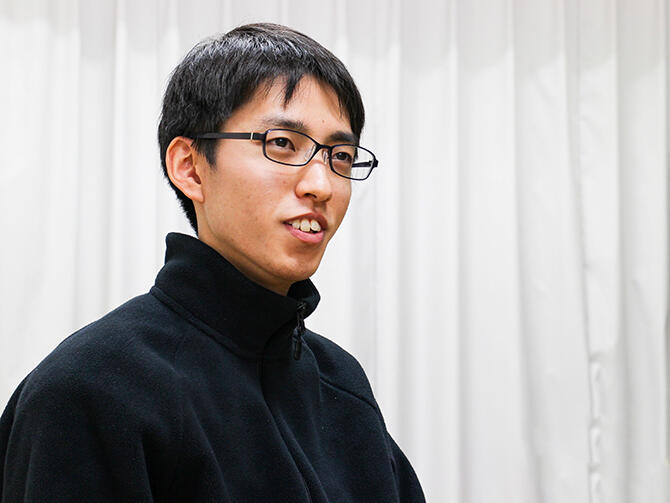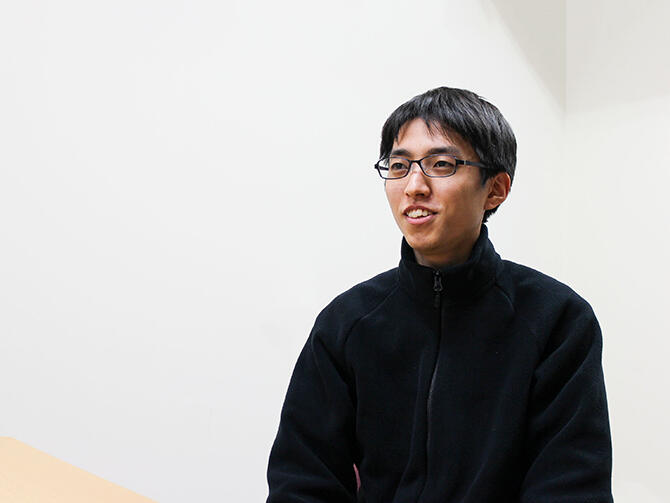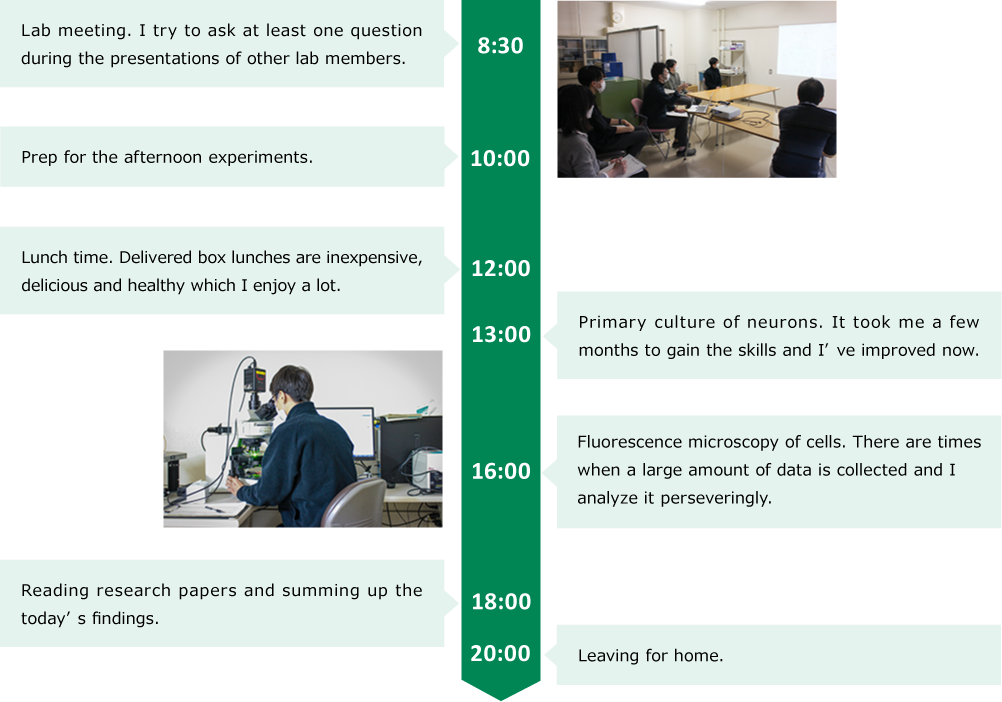
Kohei Ikarashi
Master in Biomedical Sciences course
Interview

Tell us about the research you are currently doing at BRI.
My research focuses on the mechanism to reconstruct neural circuits following stroke. Stroke causes damage to neural circuits of the brain and spinal cord, resulting in various aftereffects. Our lab studies genes involved in the reconstruction of neural circuits and recovery of motor function in mouse models of stroke. While I am still learning experiment techniques every day, I find it challenging and fulfilling to tackle such a research theme, which would pave the way to develop novel strategies to cure stroke paralysis.
Why did you decide to come to BRI?
I was watching a TV program on neuroplasticity and that stimulated my interest in neuroscience. Since then, I have had a strong interest in the mechanisms of neural system that is responsible for complex and diverse functions as well as its flexibility (plasticity). When I was wondering which grad school to go to, I thought, "I may as well pursue my own interest in neuroscience...!". I did some research and found out about BRI. I felt that BRI would provide an ideal research environment for me to focus on my master's program so I decided to enroll.

What would you like to say to people who are thinking about graduate programs at BRI?
I studied material science for four years as a bachelor's degree and I didn't have much knowledge of biology or medicine. I was anxious before starting the graduate program but the lab members welcomed me warm-heartedly. Their attentive trainings and supports help me have a successful research life. I believe that BRI provides an excellent research environment where even a student without a strong research background like myself can broaden the perspective in the fields of biology and medicine through neuroscience research.







